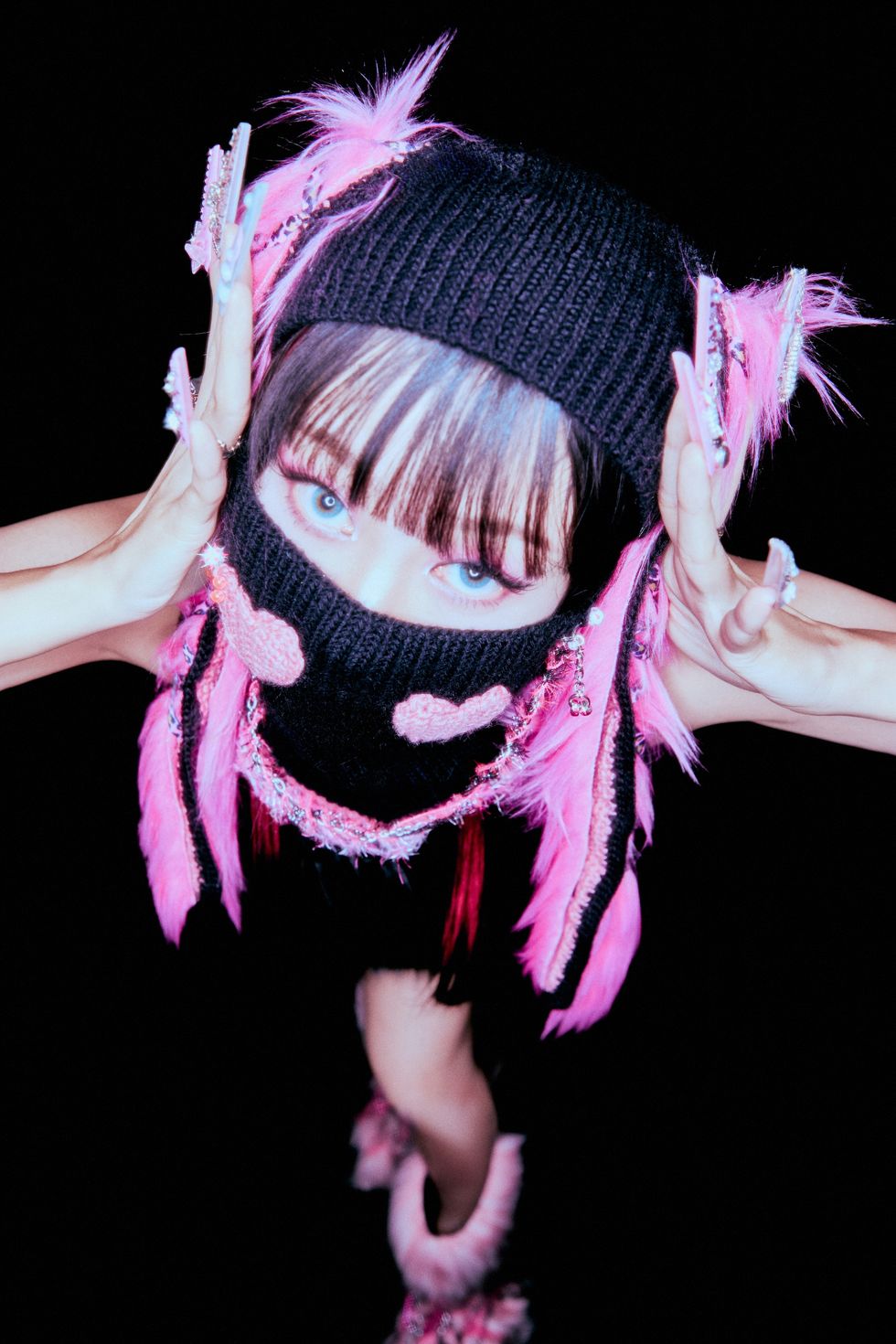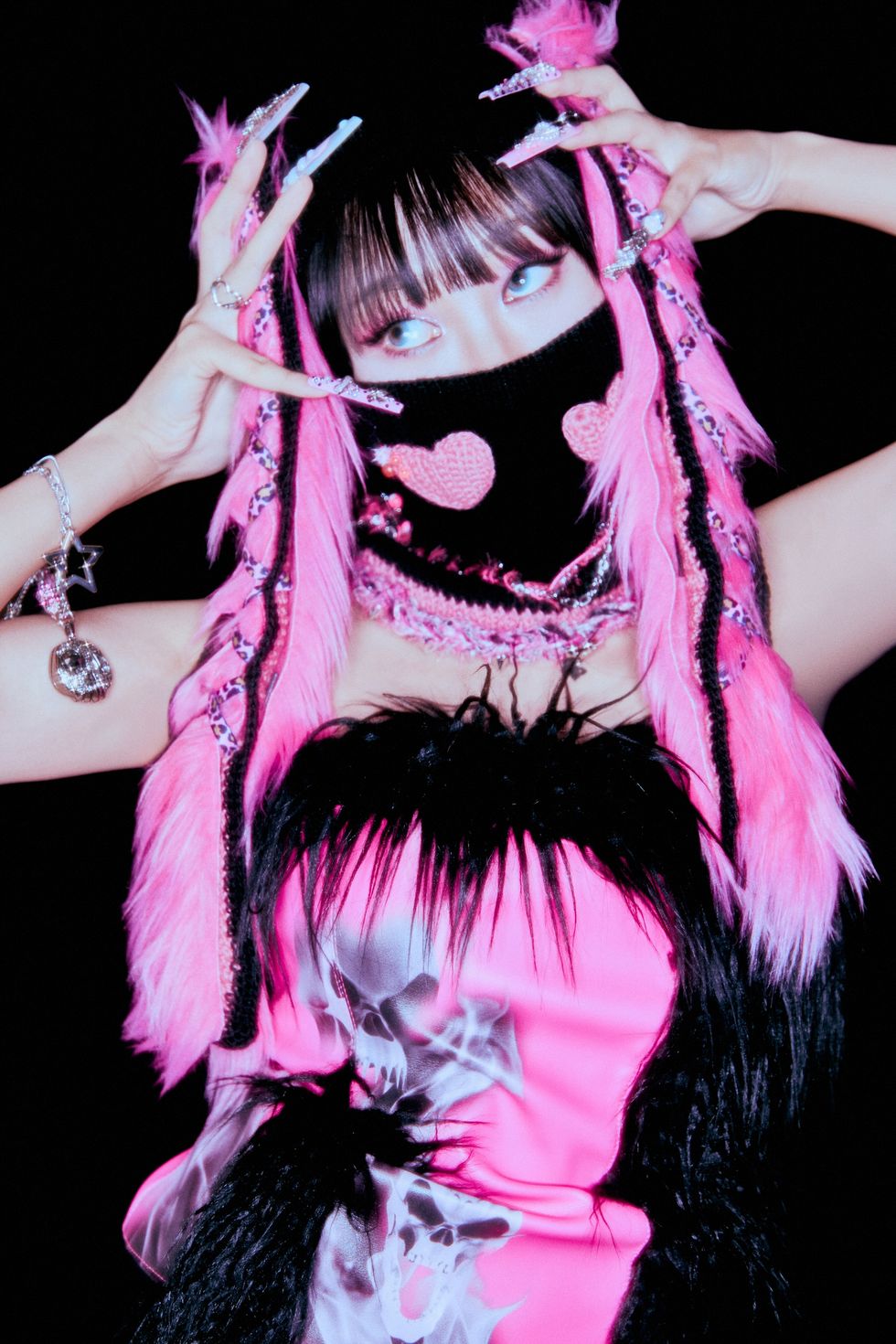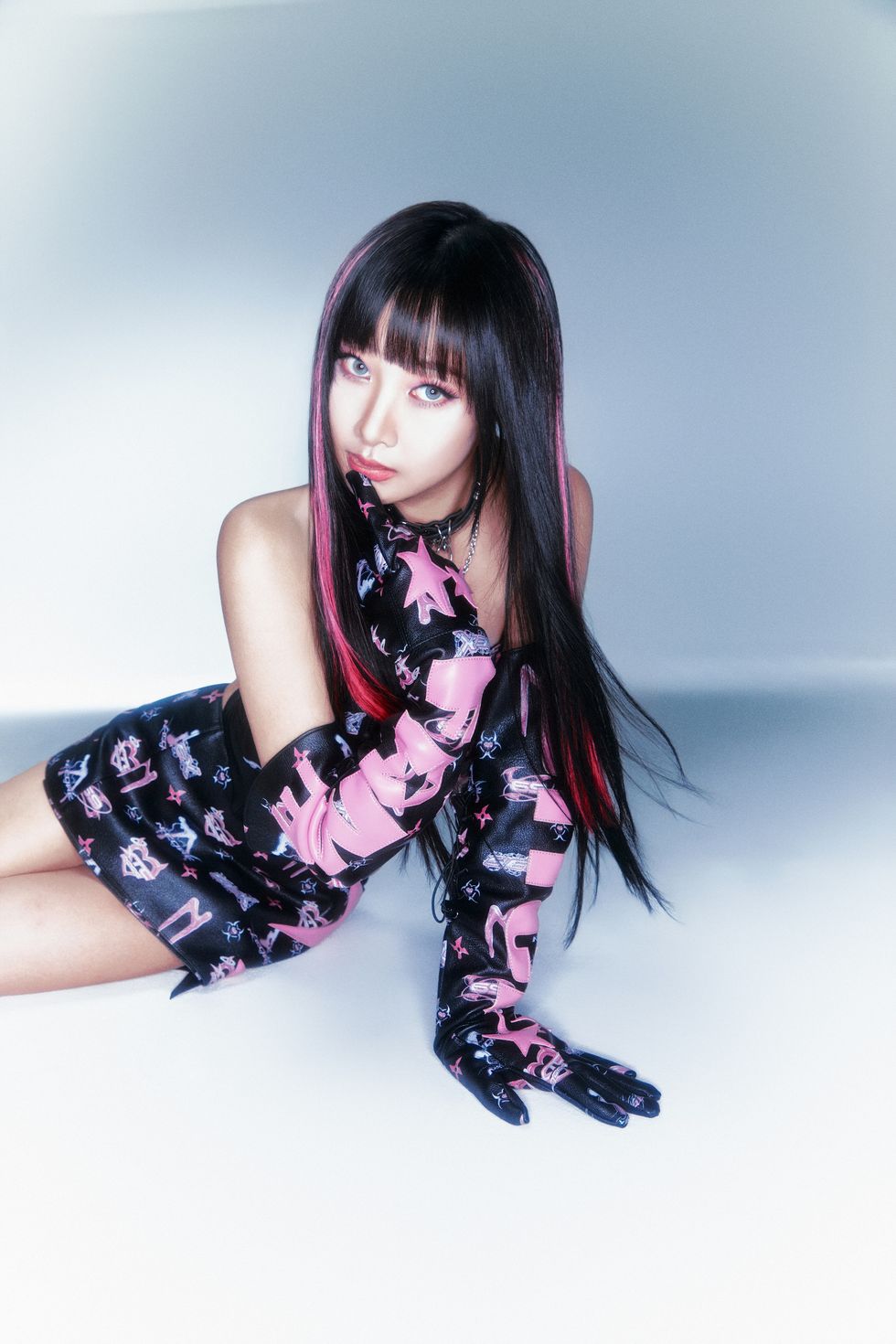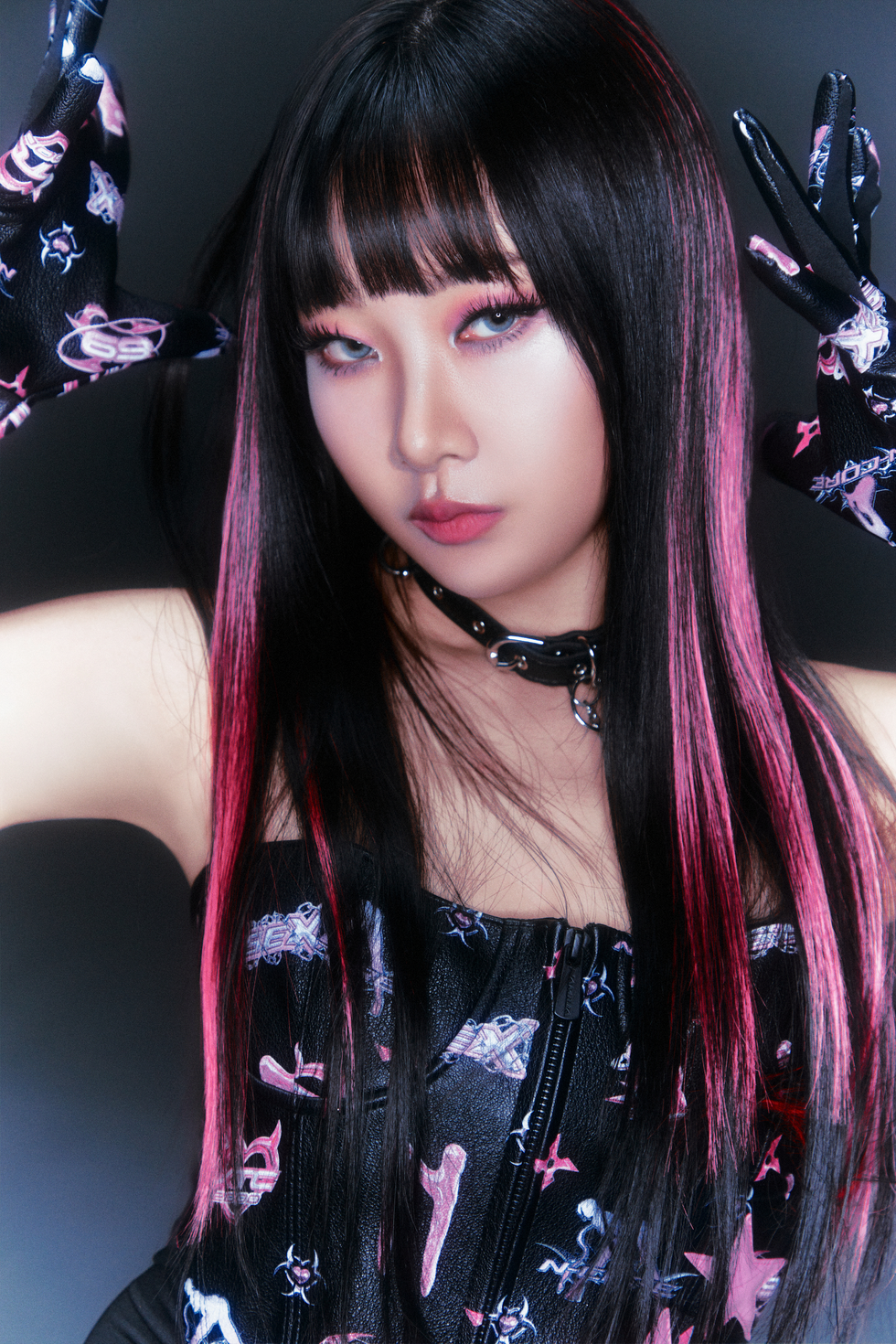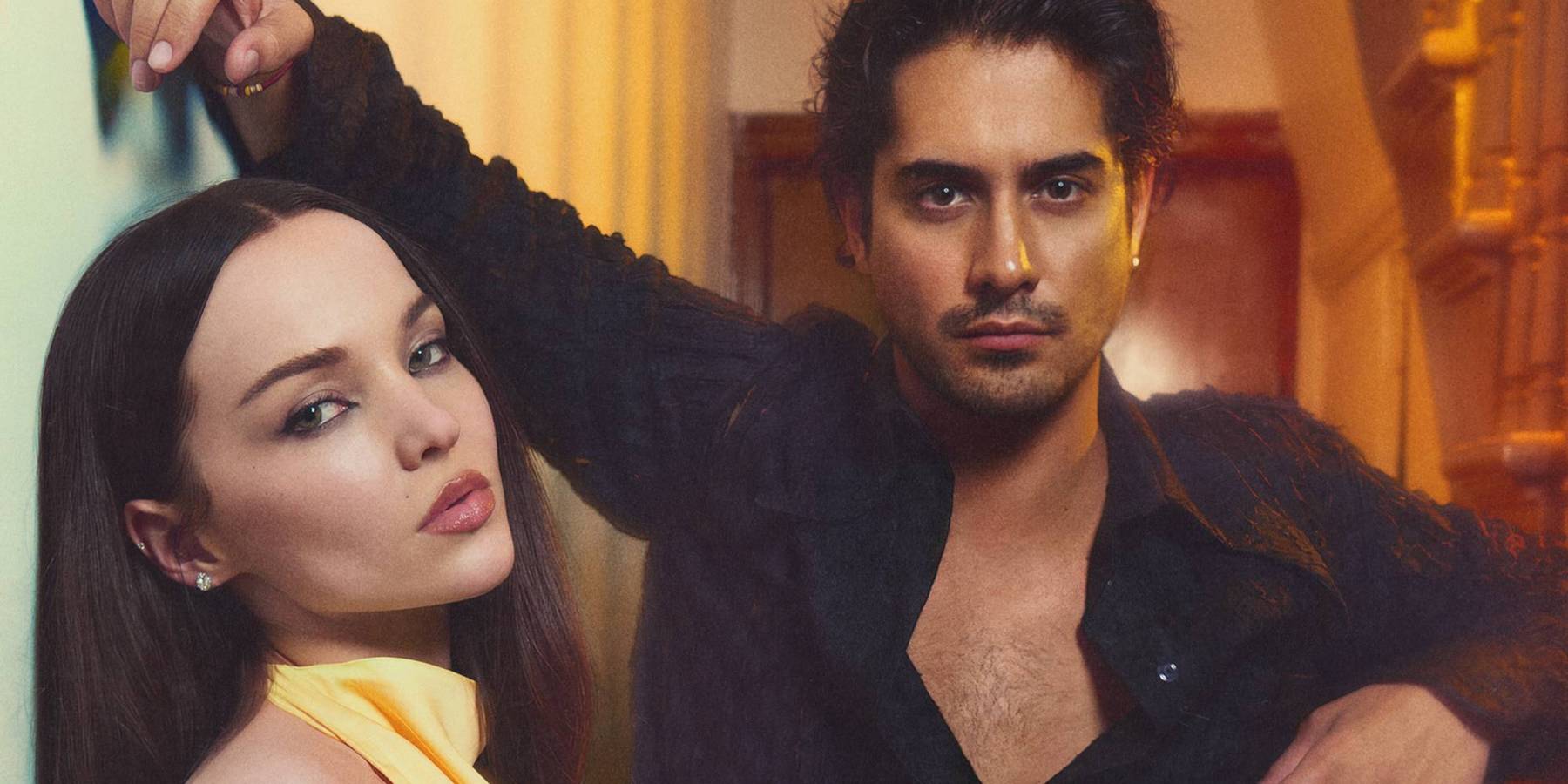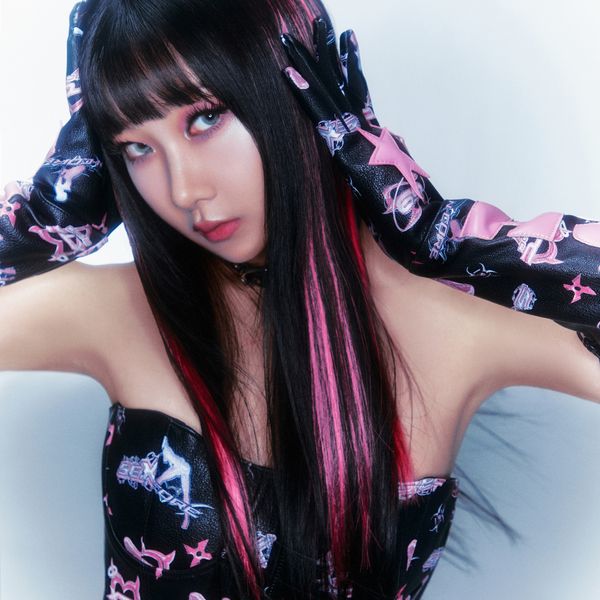
K-pop's The Deep Is Bringing Y2K Back
By Ryan Khosravi
Jan 06, 2025
When people think of Korean music, their minds often go to K-pop groups backed by major labels, like New Jeans, BTS or Blackpink. They might picture massive music videos, cute aesthetics, or perfectly synchronized choreography. What likely doesn’t come to mind are independent artists like The Deep.
The Deep is a Korean singer-songwriter who has been steadily gaining recognition for her distinct 2000s-inspired visuals and UK garage sound — two elements that are pretty unique to Korean audiences. As a result, she's found more success internationally than at home. Those international fans are also drawn to K-pop groups, where restricted communication between artists and fans are the norm. “I’ve never wanted to become an idol," The Deep tells PAPER. "Being an idol seems like a profession with so many restrictions.”
In contrast, The Deep breaks away from these restraints. She spends a lot of time interacting with her fans, inviting them to be part of her journey as she herself learns more about the music industry. “I’m a person who values freedom, so it doesn’t suit me at all," she says. "In fact, I think my fans love me even more because I don’t act like an idol.”
Even among independent artists, The Deep stands out for her commitment to high-quality production while managing an impressive range of creative tasks herself. On one hand, she releases meticulously crafted music videos; on the other, she personally designs her physical album booklets. It’s this combination of professionalism and hands-on creativity that not only defines her work but also creates a deeply personal connection with her audience.
Below, The Deep chats with PAPER about her Y2K influences, her international fans and her newest album Electric Pink.
I’ve been following you for a couple of years and I think of your work in three chapters. Your first big song was “Muah!” then “Bappi” and finally this new album, Electric Pink. How would you describe your musical journey with these three eras?
“Muah!” was the first UKG [UK garage] track I made when I wanted to dive into electronic music. If you listen to my latest release, Electric Pink, you'll notice how much my sound has evolved and become more bold.
Back when I created “Muah!” it was a sound I wasn’t listening to often at the time. It’s fascinating to see this journey unfold. Trends have changed since then, and I naturally started gravitating toward more intense and dynamic sounds. As for the music I’ll make in the future, even I can’t predict it. I tend to create whatever I feel like making in the moment. I guess that unpredictability is what makes me an interesting artist, even to myself.
You are clearly very inspired by the Y2K aesthetic – you have a playlist literally called Y2K gurl. Was the Y2K sound and visual something you grew up with or was it something you discovered as an adult?
The Y2K gurl playlist is a collection of music for people who love Y2K vibes. To be precise, I made it so people could better understand the kind of sounds I create. Especially in Korea, the genres I work with aren’t very common, so I wanted people to naturally hear the music I love and, in turn, understand my own work a bit more. Creating this playlist has become one of my hobbies. As for Y2K culture, I think I was exposed to it a lot through K-pop when I was younger, but I didn’t fully understand its charm until I became an adult. Once it started trending again, I found myself falling deeply into the aesthetics and vibe of Y2K.
Do you remember any specific media (images, fashion, music, music videos, movies, etc.) from the Y2K era that you've been inspired or influenced by?
The influence I got from Y2K wasn’t necessarily from specific images or music, but mostly from Instagram. Y2K was such a huge trend, and I naturally started saving and collecting Y2K-inspired images. Plus, platforms like YouTube and TV often produced content centered around this theme, which naturally influenced me.
Speaking of inspirations, I couldn’t help but notice the Sophie influences, specifically on one of the new songs, “NPC.” Can you tell me about your first exposure to Sophie or PC Music?
I first discovered Sophie through the song “Lemonade,” but at the time, the sound felt a bit too complex for me. I think I started to understand it more after listening to “It’s Okay To Cry.” However, what really made me want to create this sound was listening to Charli xcx's music. I realized you could pair cool vocal melodies with such bold, experimental beats. The beat for “NPC” was actually recommended to me by Weissen, who produced it. He suggested the sound and created it specifically with the vibe of the album in mind. "NPC" became a way for both of us to explore and express our take on PC Music. Shout out to Weissen.
A lot of your fans are also fans of idol girl groups. Have you ever felt pressure to act like an idol because of that? Growing up, did you ever want to be an idol?
I’ve never wanted to become an idol. Being an idol seems like a profession with so many restrictions, and I’m a person who values freedom, so it doesn’t suit me at all. I’ve never felt any pressure either because my goal has always been to be an honest artist. In fact, I think my fans love me even more because I don’t act like an idol.
What music did you listen to growing up? Did you listen to idol groups? If so, who were your favorites? If not, what did you listen to?
I used to love the boy group SHINee. The first physical album I ever bought was SHINee’s The SHINee WORLD. At the time, I really enjoyed the music from SM Entertainment groups.
It seems that most of your fans are outside of Korea. Were you expecting that to happen? Has it changed anything about how you post on social media or make music? Has anything shocked you about interacting with international fans?
I never expected to have more international fans than domestic ones, but I’ve always had the goal of working on a global scale. That’s why, even though my English isn’t perfect, I’ve made an effort to communicate in English and incorporate it into my lyrics. Part of it is for communication, but I also find it fun to mix Korean and English in my songs. What I’ve noticed while interacting with international fans is that they seem to understand the sound of my music more deeply than domestic fans. That makes me incredibly happy and grateful for their support. Even though I have a large international fanbase, I do hope to gain attention in Korea as well. At the end of the day, it doesn’t matter to me where my fans are from — I’m just thankful that they enjoy my music.
Given your audience is international and might not know other Korean artists, especially ones you grew up with, is there any artist from your youth that you think your fans might like?
There’s a song called “Y” by Freestyle, and it’s honestly the definition of Y2K music in Korea. I’m not sure if my fans will like it. And, of course, I’d also recommend SHINee’s “Replay”.
Do you have any specific goals for 2025?
My biggest goal for next year is to join an agency or entertainment company as an artist. To take what I’ve already achieved to the next level, I believe I now need significant investment. I’ve done well as an independent artist so far, but next year, I want to be busier and present even higher-quality work. Honestly, this album was a success, but I can’t help wondering if it could have done even better with more support and investment. Also, I have a lot of fans overseas, but there’s no way I can go on tour alone. That’s why I feel like I urgently need the help of a company. In 2025, I want to show an even cooler version of myself and fulfill my dream of going on a USA and UK tour.
Photography: KIMMOONDOG
Related Articles Around the Web
MORE ON PAPER
Entertainment
Dove Cameron and Avan Jogia Broke Their Molds
Photography by Gustavo Chams / Story by Joan Summers
Photography by Gustavo Chams / Story by Joan Summers
18 February
ATF Story
Madison Beer, Her Way
Photography by Davis Bates / Story by Alaska Riley
Photography by Davis Bates / Story by Alaska Riley
16 January
Entertainment
Cynthia Erivo in Full Bloom
Photography by David LaChapelle / Story by Joan Summers / Styling by Jason Bolden / Makeup by Joanna Simkim / Nails by Shea Osei
Photography by David LaChapelle / Story by Joan Summers / Styling by Jason Bolden / Makeup by Joanna Simkim / Nails by Shea Osei
01 December
Entertainment
Rami Malek Is Certifiably Unserious
Story by Joan Summers / Photography by Adam Powell
Story by Joan Summers / Photography by Adam Powell
14 November
Music
Janelle Monáe, HalloQueen
Story by Ivan Guzman / Photography by Pol Kurucz/ Styling by Alexandra Mandelkorn/ Hair by Nikki Nelms/ Makeup by Sasha Glasser/ Nails by Juan Alvear/ Set design by Krystall Schott
Story by Ivan Guzman / Photography by Pol Kurucz/ Styling by Alexandra Mandelkorn/ Hair by Nikki Nelms/ Makeup by Sasha Glasser/ Nails by Juan Alvear/ Set design by Krystall Schott
27 October
